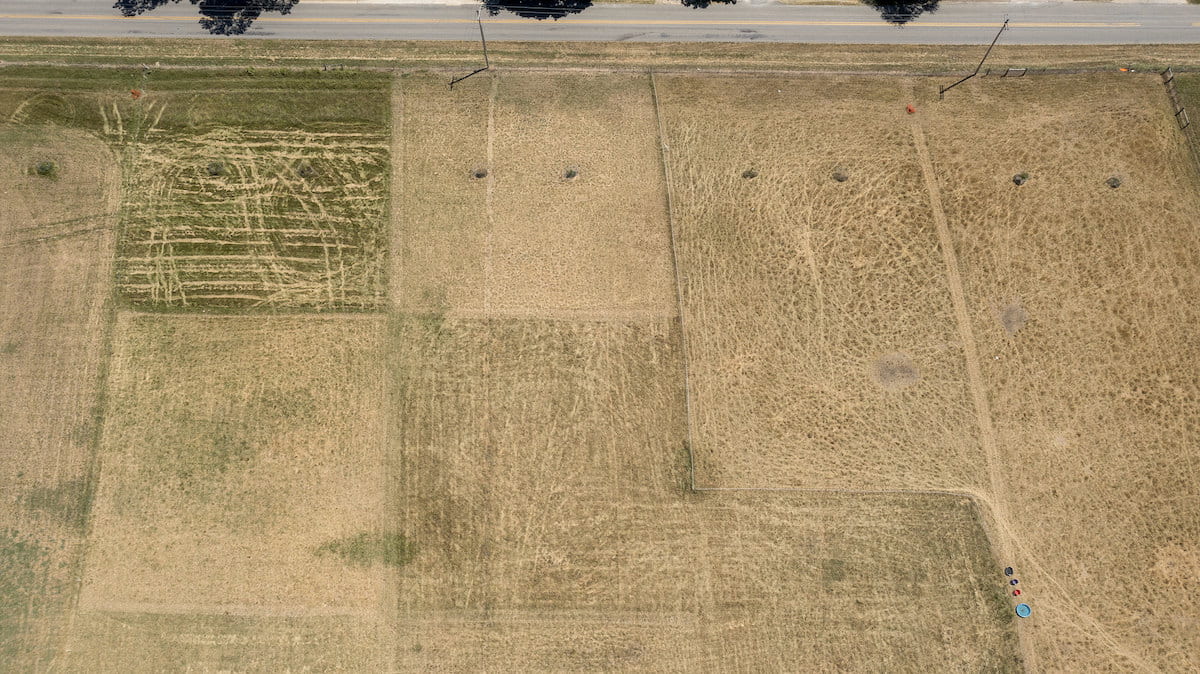Linda Poole
NCAT Regenerative Grazing Specialist
The Soil for Water team is grateful for a grant from USDA's Sustainable Agriculture Research and Education (SARE) program to work with diverse partners to advance the practice of regenerative grazing in Arkansas, Mississippi, and Virginia. John Lovett's article, posted today, explains:
Want to learn more? Contact NCAT's project leader Linda Coffey (lindac@ncat.org) and read the full article at:
 aaes.uada.edu
aaes.uada.edu

SOIL FOR WATER — A view from above the Soil for Water Project grazing study at the Arkansas Agricultural Experiment Station: not grazed, top left; overgrazed, top middle, and conservatively grazed, bottom middle. (U of A System Division of Agriculture photo by Paden Johnson)
FAYETTEVILLE, Ark. — Making the most of a pasture, especially when threatened with drought conditions, calls for careful management.
A new study by the Arkansas Agricultural Experiment Station, the research arm of the University of Arkansas System Division of Agriculture, in cooperation with the National Center for Appropriate Technology, is measuring the impact overgrazing can have on pastures.
Want to learn more? Contact NCAT's project leader Linda Coffey (lindac@ncat.org) and read the full article at:
Soil for Water Project Looks at Effects of Overgrazing
Making the most of a pasture, especially when threatened with drought conditions, calls for careful management. A new study by the Arkansas Agricultural Experiment Station, the research arm of the University of Arkansas System Division of Agriculture, in cooperation with the National Center for...




